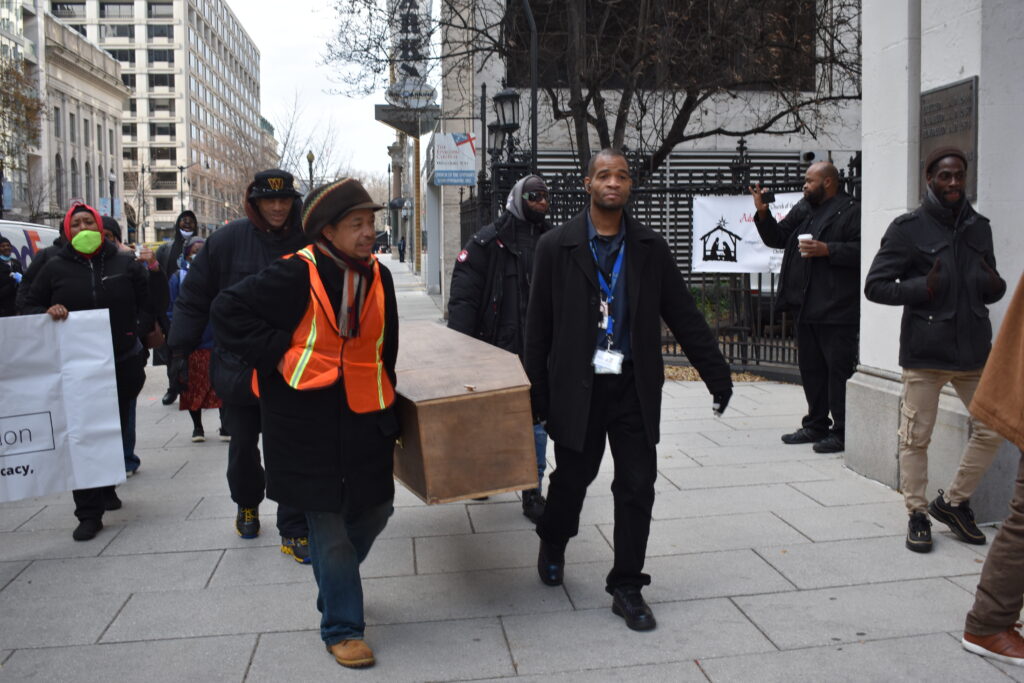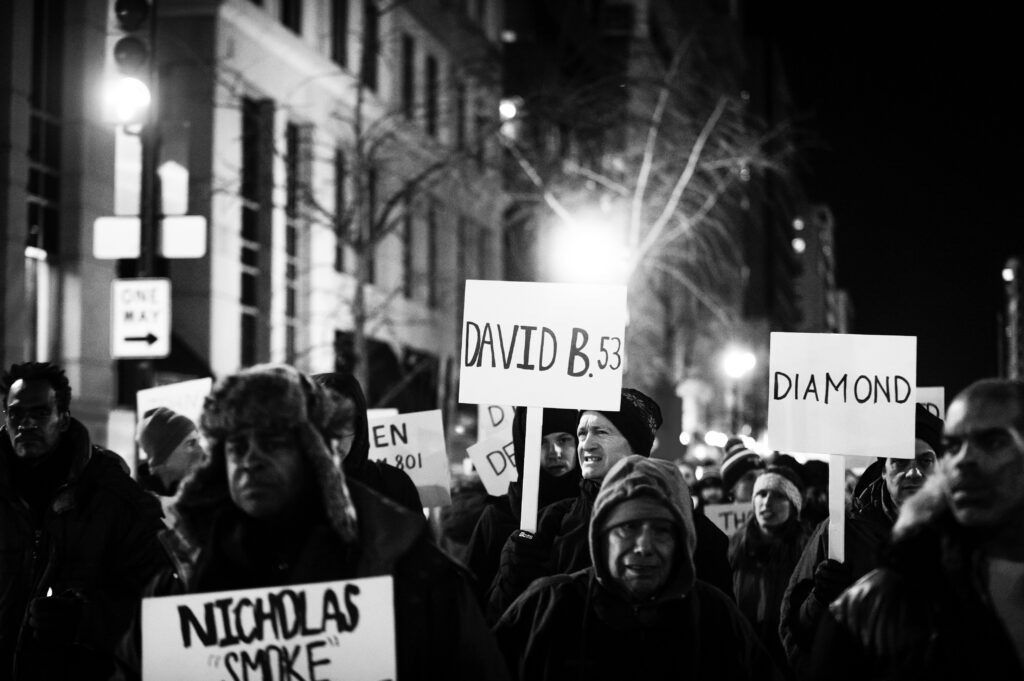More than two years have passed since Myles “Lashai” McLean, a transgender woman, was fatally shot on a Northeast Washington street.
But the struggle to address violence and discrimination against other transgender people goes on, said Earline Budd of Transgender Health Empowerment.
She and other advocates can point to one recent measure that might help provide homeless transgender women with services and a haven from the streets.
As the result of a successful lawsuit, the John L. Young shelter is now required to accept transgender women: and the staff at the facility is receiving training geared toward helping to ensure equal access.
Following the court decision, Lakiesha Washington, a transgender woman who brought the suit, was allowed to live in the shelter, which is located in the basement of the large federal shelter on 2nd and D Street NW, known as the Community for Creative Non Violence. It houses up to 88 women per night.
The directors of the shelter were compelled to update the bathroom facilities for maximum privacy, as reported by the Washington Blade.
Sterling Washington, the Director of the mayor’s office for LGBT affairs, offered sensitivity training to the shelter’s staff on April 20 as part of a mayoral directive after the lawsuit. By law, shelters are not allowed to refuse admittance to a person on the basis that they are transgender.
“The training consisted of getting people familiar with some of the language in the GLBTQ community,” Washington said. “That community tends to be on the receiving end of a lot of discrimination.”
The shelter had had problems in the past with a transgender lesbian woman and the lack of privacy in their facility, Budd said. The conflict that arose prompted the shelter’s administration to put in place a discriminatory policy which refused all transgender women.
“When I first heard about her experience I was shocked and of course I was upset,” said Budd, who had previously worked with the John L. Young shelter on behalf of lesbian and transgender women. “She was embarrassed and humiliated, and she was hurt.”
Calls to and messages left with John Shetterly of New Hope Ministries, which operates the shelter, were not returned to Street Sense by press deadline, and Reverend Alberta Johnson, director of the shelter, declined to answer questions.
Some of the women in the shelter remain uncomfortable with the presence of transgender women because they perceive them to be men, said Stardra White, who has stayed at the John L. Young shelter for the past 12 months. The discomfort stems from the limited privacy in the shelter and the past trauma of shelter residents who have been abused by males.
“It’s demeaning because it takes away your privacy,” White said.
Other residents, like Shacona Ward, don’t have a problem with the presence of transgender women in the shelter. Ward lived in the shelter for four months, ending in the beginning of Oct. when she moved into the CCNV shelter.
“I don’t think they can help the way they are, so I don’t think it’s our job to judge them,” Ward said.
As for Lashai Mclean, police say they still do not know who gunned her down early on July 20, 2011. The murder took place on Dix Street, not far from a home for LGBT youth run by Budd’s group.
Budd says she is not convinced that the Metropolitan Police Department has exhausted all of its resources in cases of discrimination against transgender people. Other cases, in which the public is more interested, seem to be solved much more quickly. Such crimes continue to haunt her, she said.
“We’ve had too many things happen to transgender women in the District that have led to death.”
Tyli’a “NaNa Boo” Mack (nee Joshua Mack), 21, was stabbed on Aug. 26, 2009 in broad daylight on Q Street NW. She was pronounced later that day in Howard University Hospital. The same man who stabbed her had spoken hateful words to her earlier in the day, Budd said.
Inseparable friends Ukea Davis, 18, and Stephanie Thomas, 19, were shot to death on Aug. 12, 2002 on the corner of 50th and C Street SE in one of the most brutal murders in the D.C. area, Budd recalled. Davis was killed instantly, but when Thomas showed signs of life the shooter returned and shot her several more times.
Both of these cases remain unsolved. However, when Howard University senior Omar Sykes, 22, was shot this July 4 on Fairmont Street NW, a suspect was arrested within a few months.







